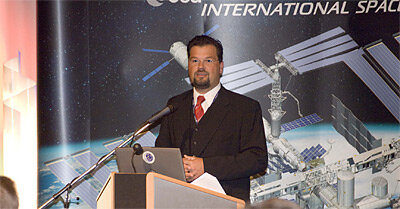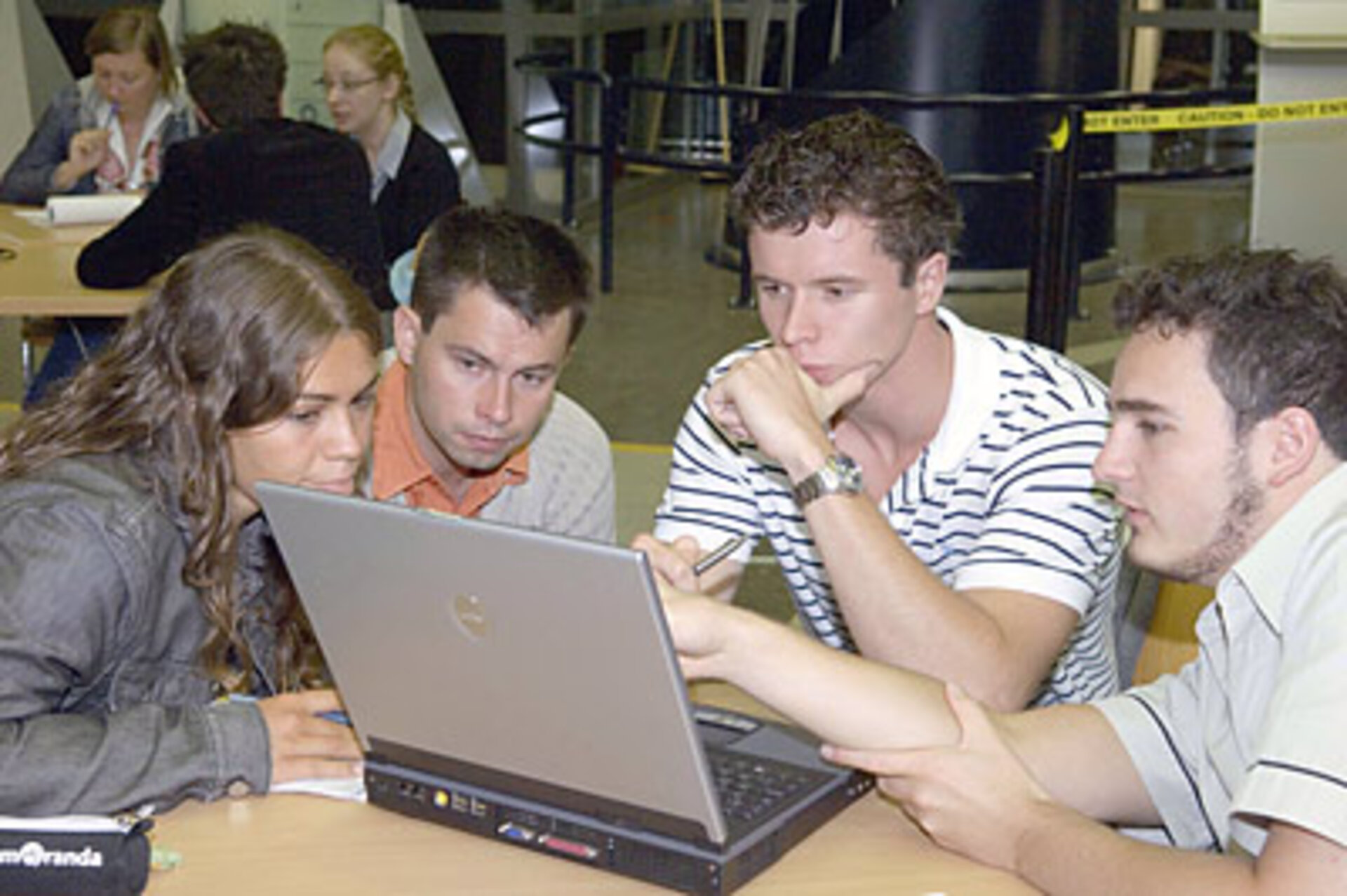Turning technology into a business opportunity
This week 28 management school students are meeting at ESA’s Space Research and Technology Centre (ESTEC) in the Netherlands to explore what it takes to turn technological breakthroughs into viable businesses.
The one-week Community of European Management Schools (CEMS) seminar is organised by ESA and the Erasmus Centre for Entrepreneurship of the Rotterdam School of Management (RSM). Starting on 28 August and ending on 1 September, the seminar is an initiation into the one-year CEMS Masters in International Management.
“This seminar is similar to a ‘pressure cooker’, students have just five days to develop a fully fledged business plan as it must be ready for presentation on Friday afternoon”, says Niels Eldering from ESA’s European Business Incubator, one of the seminar’s organisers.

“On Sunday evening we gave the students the subject: a space technology spin-off for which they have to prepare a business plan. Students work in groups with a team of international practitioners to support and challenge their planning efforts.” This year’s case-patent is provided by ASTRON, the Dutch foundation for research in astronomy in Dwingeloo. “Ultimately, if a business plan is very opportune and feasible, it may result into a real spin-off. That is what makes this seminar so exciting: it is a real patent waiting for exploitation.”
This week’s course is just one of the seminars organised by 17 leading management schools across Europe, all members of the Community of European Management Schools. Managed by interdisciplinary, inter-university teacher teams, they give students an opportunity to debate and discuss innovative management topics from different cultural perspectives.
ESA’s Technology Transfer & Promotion Office and its Business Incubator host the first three days of the seminar in the Erasmus Centre at ESTEC. This gives students an overview of what goes on in a European high-tech research centre and ESA staff are able to give the students some insight into the multitude of advanced technologies developed for Europe’s space programmes and how ESA, through the Technology Transfer & Promotion Office, kicks off the use of these technologies into non-space fields.

Speakers from leading European management schools complement the discussions by presenting topics such as ideas, innovation, creativity, technology search and entrepreneurship.
Students spend the last two days mainly working on their business plans at the RSM Erasmus Centre to ensure they are ready for Friday’s presentation in front of an evaluation board made up of staff from RSM, CEMS, ESA and ASTRON.
During this intensive week, students are given an opportunity to explore what it takes to develop technological breakthroughs into a viable business by identifying an opportunity, putting a team together, assembling the resources needed and developing a business model for exploitation.
Students learn that the core of entrepreneurship is being able to commercialise technological advances created by scientists and engineers at universities, public research institutes and corporate research labs. Students from previous seminars organised with ESA have been very positive about the experience.
Maricio Betti, a Brazilian CEMS student from Esade University in Barcelona who participated in last year’s seminar at ESTEC, commented: “Our seminar at ESA proved to be well above my expectations. I was impressed with the quality of the event and the commitment of both the ESA and the CEMS coordinators at RSM. This first insight into the programme made me realise just how valuable the experience with CEMS would be.”




